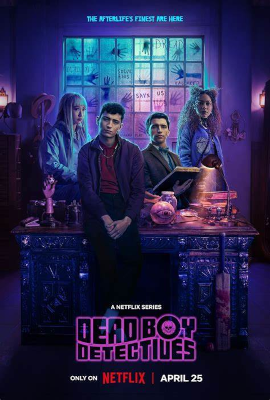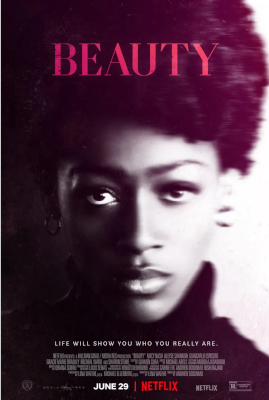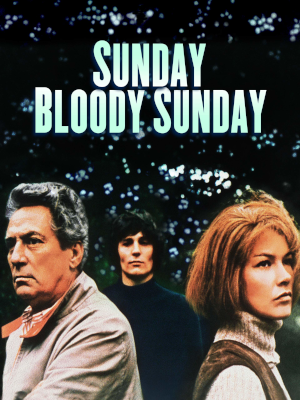
Pariah is a coming-of-age story with all the heartache, confusion and fear that comes with it. The film is beautifully told, playing out slowly and trusting the viewer to put the pieces together. It’s a subtle story with great acting.
Pariah opens in a dark bar with strippers sliding down poles, music blaring and people pressed up against each other. It takes a while before you realize it’s a lesbian bar, with a mixture of butch and fem dancing and carrying on. The 17 year old Alike (Adepero Oduye) is there with her friend Laura (Pernell Walker), who feels much more comfortable in her skin and surroundings than Alike. Both girls are butch, but only Laura is openly lesbian.
The scenes between Alike and Laura expose Alike for who she is, a young girl on the verge of discovering herself as a sexual person and a lesbian. She’s still a virgin, and Laura teases her about it. The friendly banter between Alike and Laura sounds natural and shows the depth of their friendship. They understand and support each other, which is something Alike does not get at home.
Even before she gets home, Alike has to change out of her butch clothes and into something more feminine. Gone is the warmth and support she gets from Laura. Her parents are distant from each other and their two daughters. The only playfulness comes from her younger sister, Sharonda (Sahra Mellesse), as she taunts her for coming home late. During dinner there’s a delicate dance as her parents grapple with their daughter’s identity with choice words that hint at what they suspect.
Alike’s mother, Audrey, played superbly by Kim Wayans, notices the changes her oldest daughter is going through and begs her husband, Arthur, played by Charles Parnell, to speak with her before it’s “too late.” But Arthur would rather not discuss it with Alike and pulls away the few times the subject comes up. When Alike mentions that there’s someone who she thinks likes her, Arthur is quick to throw in that it’s a boy. This is a painful scene to watch, especially since the closeness the characters have is obvious.
Unlike Alike’s father, her mother, Audrey, is a woman trying to hide the shame she feels for her daughter. Kim Wayans could have played Audrey as the villain, but instead chooses to give her a humanity that makes the viewer feel bad for her. Her husband is never home, won’t listen to her when she tries to explain how she feels, and she can’t control her oldest daughter. Her world is slipping out of her control and she doesn’t know what to do about it.
The final player is Bina (Aasha Davis), the pretty girl Audrey forces Alike to hang out with. Bina is confident with who she is and unafraid to speak her mind. She and Alike become friends, and then more when Bina makes an advance. And as Bina becomes more important to Alike, Laura feels pushed to the side.
The film culminates in heartbreak, family tragedy, and a decision Alike must make about who she is and how she’s going to live her life.
Pariah is written and directed by Dee Rees, who clearly understands her subject. The script and story have a realism that is matched by the overall look of the film. The actors all understand their characters and give some top level performances. This is a film not to be missed.




One response to “Movie Review: Pariah”
[…] Pariah read the review here: Movie Review: Pariah […]